
When it comes to the question of whether dogs are beneficial for children, the answer is a resounding yes. Dogs, much like cats, can have a profound and lasting positive impact on kids. Beyond the obvious joy of having a furry friend, the benefits of dog ownership for children extend far and wide, influencing them in numerous ways. In this article, we will delve into the lesser-known yet remarkable advantages of dogs for kids. So, if you’re pondering the question, “Are dogs good for kids?” read on to discover the surprising facts.
Companionship: A Formative Bond

Dog adoption often becomes a family affair, where pets and people form bonds through care, play, and sharing. This unique bond is especially formative for youngsters, helping them develop emotional and social skills. Dogs make excellent companions for kids, readily engaging in games and even becoming willing sidekicks in imaginative adventures. Furthermore, dogs provide a non-judgmental source of comfort, which can be particularly beneficial during a child’s early struggles. Remarkably, even autistic youngsters can form strong and meaningful connections with dogs.
Lower Anxiety: A Soothing Presence
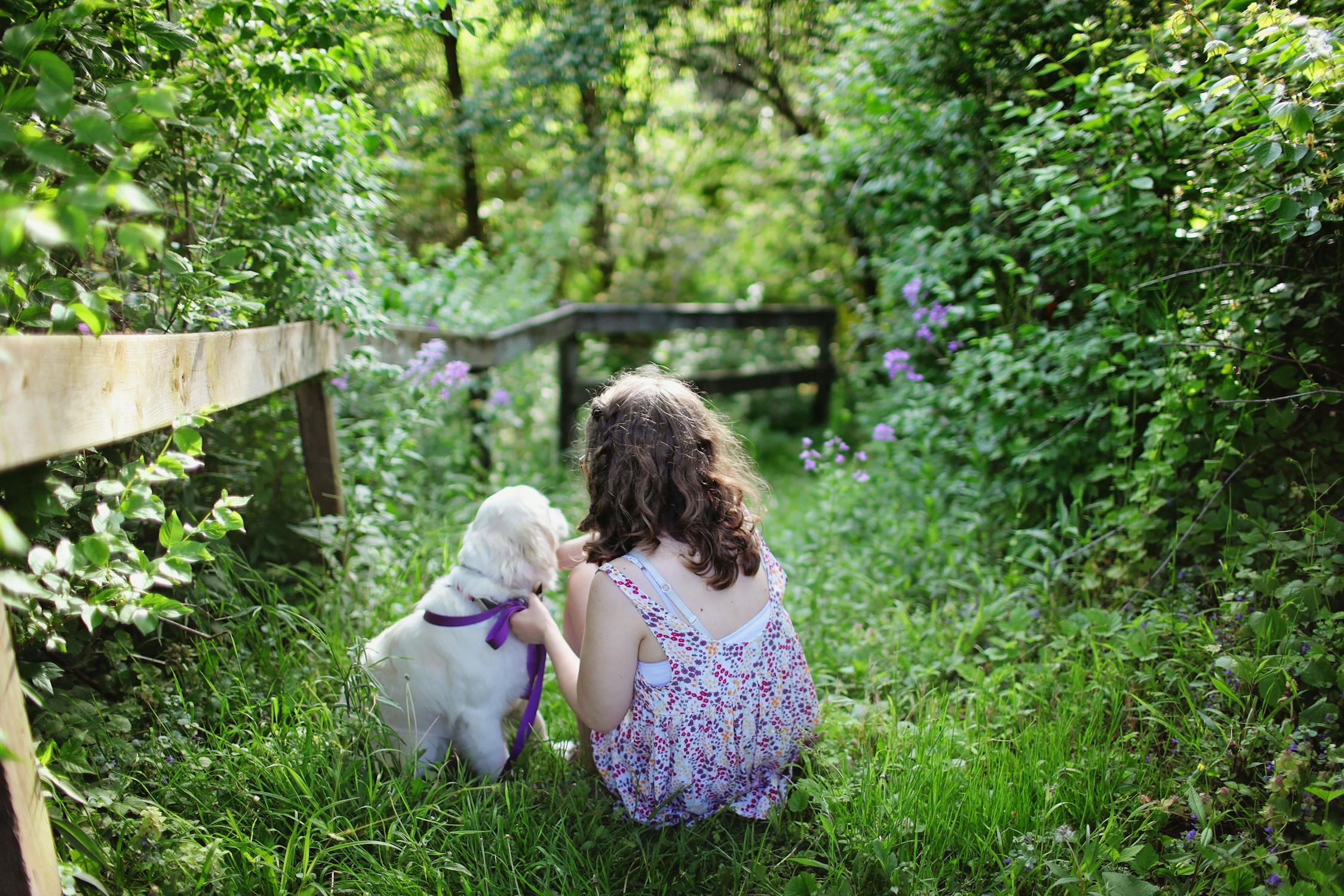
If you’re concerned about your child’s mental health, having a dog at home might be the solution. Research has shown that the presence of a dog can significantly reduce children’s anxiety. In one study, seven- to eight-year-olds valued dogs higher than humans as confidants and comforters. This unique bond with dogs can bring a sense of security and well-being to children.
Happiness: Bringing Joy and Alleviating Stress
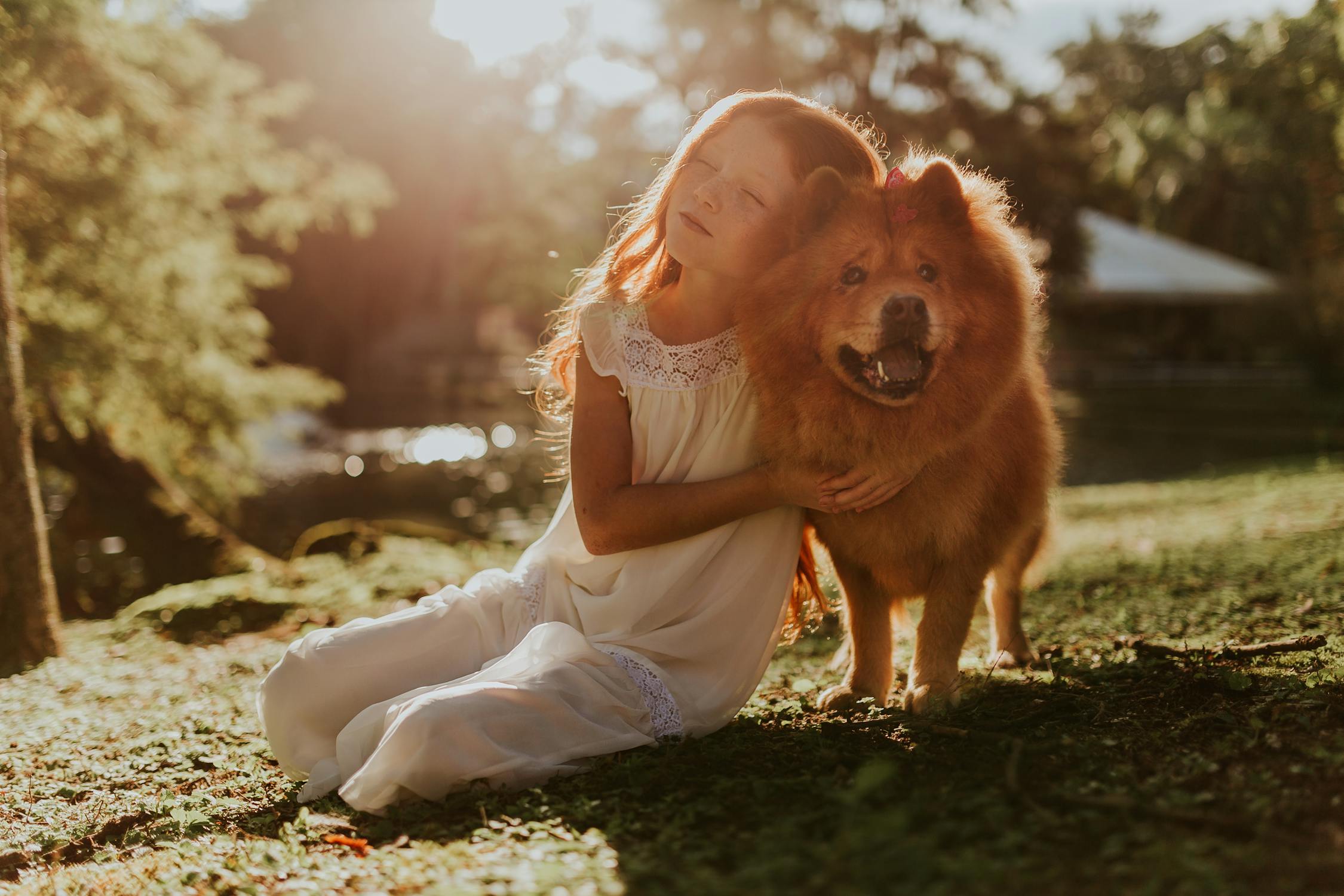
Dogs have a remarkable ability to bring joy to the lives of children while simultaneously alleviating stress. The act of playing with and hugging dogs has been shown to release oxytocin in people, a hormone that promotes socializing and reduces stress. As a result, stress hormone cortisol levels decrease, contributing to an overall sense of well-being. It’s no wonder that both kids and adults benefit from the emotional support provided by dogs.
Higher Self-Esteem: Fostering Confidence

Caring for a dog can significantly boost a child’s self-esteem, especially among pre-adolescents. Kids feel valued and responsible when they are entrusted with tasks like feeding and taking their canine companions for walks. This sense of responsibility and accomplishment can have a profound impact on their self-worth.
More Empathy: Nurturing Emotional Intelligence
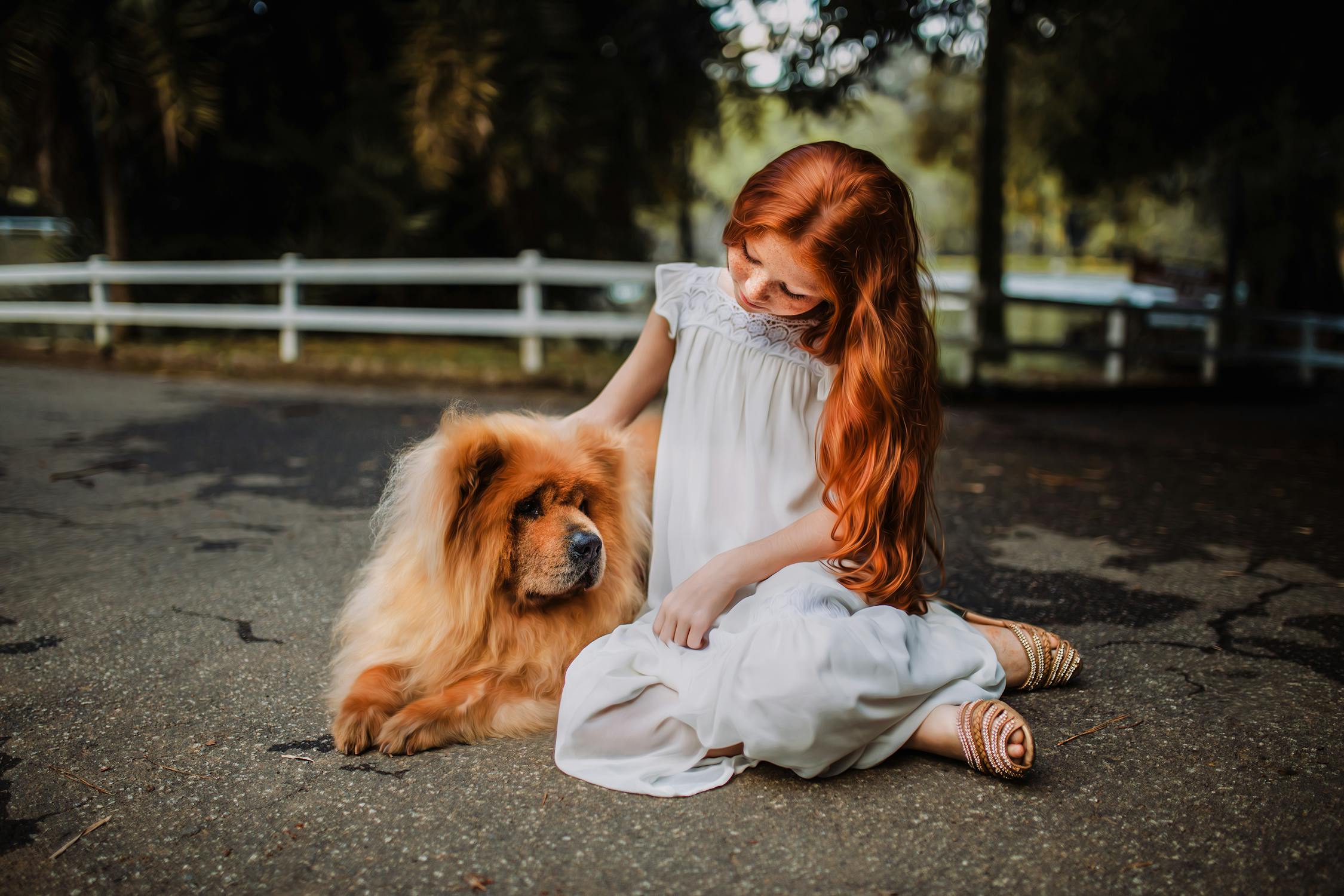
Dogs can serve as valuable teachers of nonverbal communication for children, which in turn enhances their emotional intelligence. According to the Human-Animal Bond Research Institute, dog-rearing youngsters tend to grow into more empathetic adults. This early exposure to empathy and compassion can shape a child’s character positively.
Cognitive Development: Learning Through Interaction

Beyond emotional benefits, dogs can aid in the cognitive development of children. Interacting with dogs, such as praising, commanding, and talking to them, helps young children learn language skills. The National Library of Medicine reports beneficial effects from the presence of dogs during memory and categorization tasks. Moreover, children who read to dogs often experience improvements in their reading abilities.
Improved Health: Encouraging Physical Activity
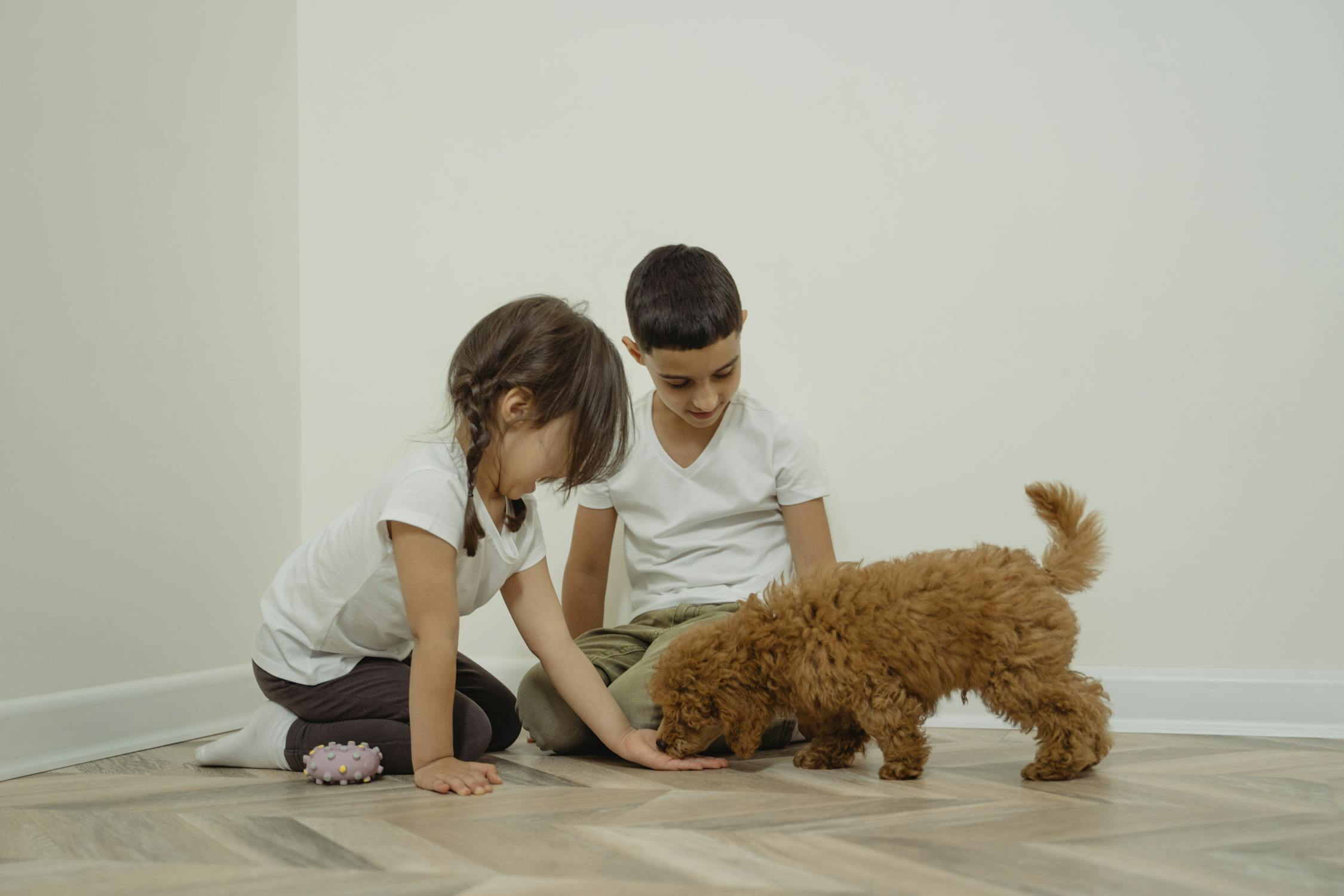
Dogs can be excellent motivators for kids to engage in physical activity. Daily walks, playtime, runs, and outdoor adventures with their furry friends provide children with the exercise they need for healthy growth. In fact, evidence suggests that having dogs in the household may reduce the frequency of illnesses in children during their first year of life.
Personal Responsibility: A Valuable Lesson
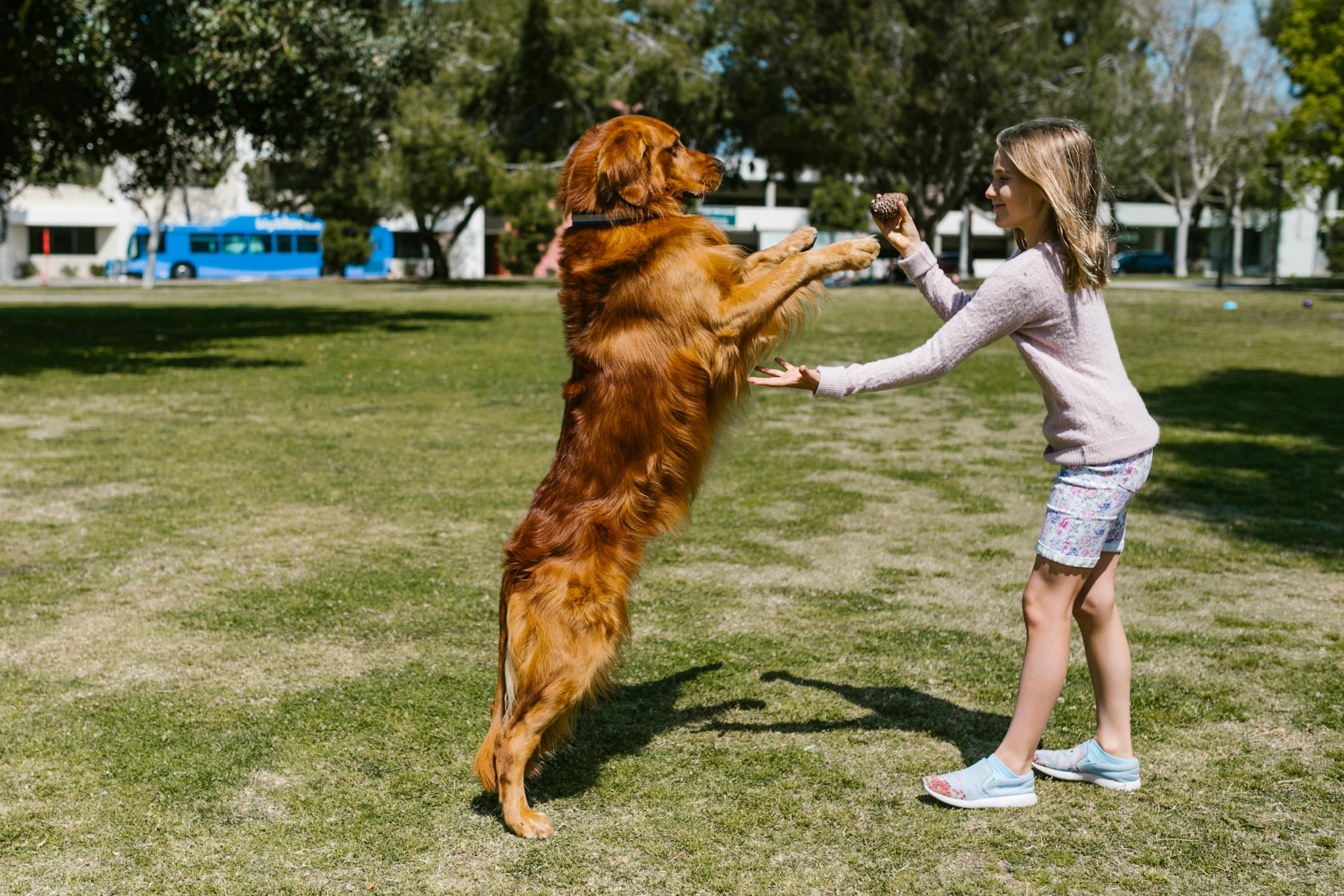
Dog ownership teaches older kids valuable life skills, primarily personal responsibility. Parents can use this opportunity to guide their children in fulfilling their pets’ needs as they grow. From daily strolls to grooming and cleaning up after their pets, children learn that caring for animals requires consistent effort and attention to detail, which can be applied to various aspects of life.
Exercise: For Good Health

Regular exercise is a key benefit of having a dog for kids. Dogs require daily physical activity, which naturally encourages children to stay active as well. Whether it’s going for a brisk walk around the neighborhood or engaging in a game of fetch at the park, these outdoor activities not only help the dog stay healthy but also promote physical fitness and a love for the outdoors in children. It’s a win-win situation, where both the dog and the kids benefit from an active lifestyle while forming a strong bond through play and exercise.
Unconditional Love: Dogs Unconditionally Love and Accept
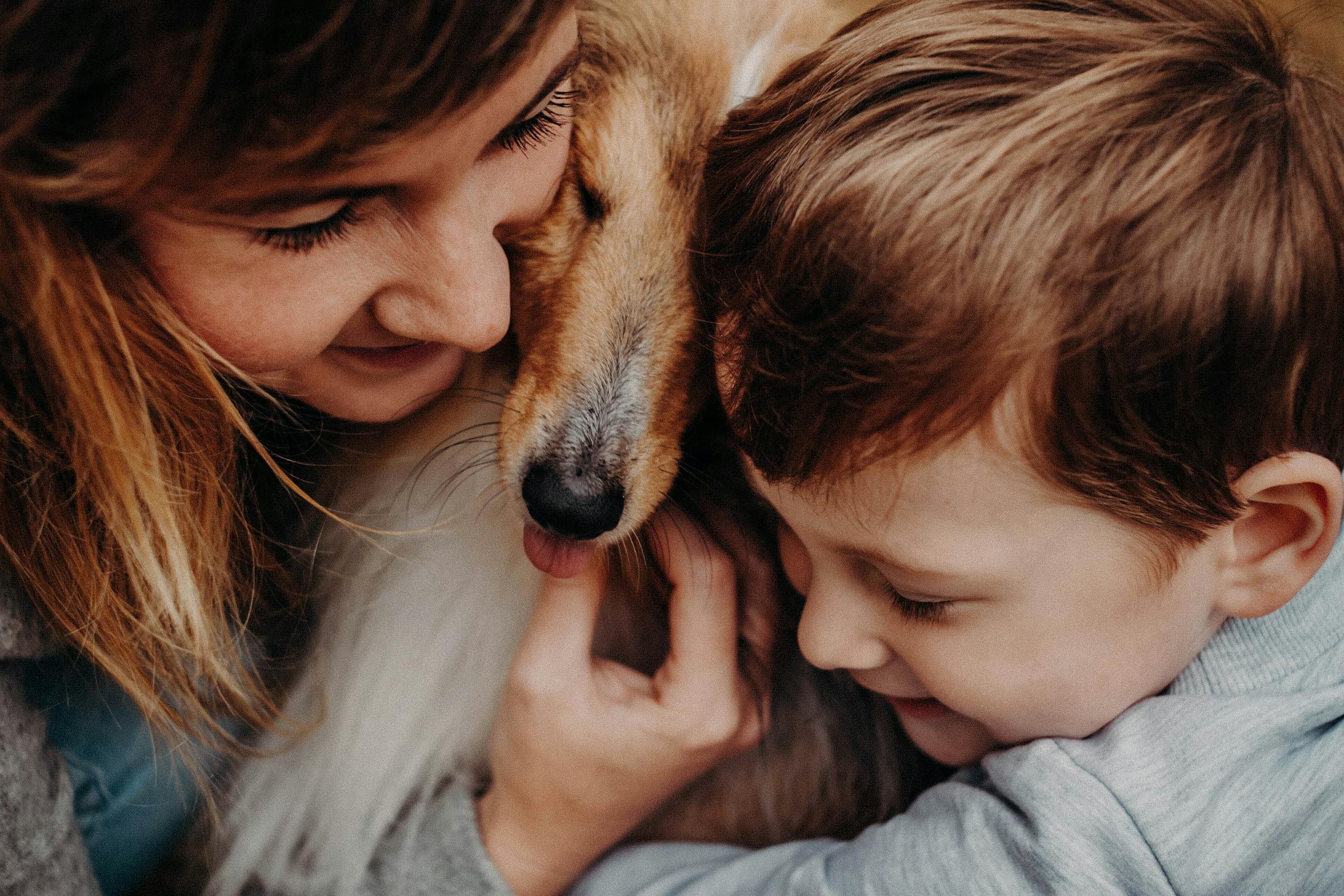
Dogs are remarkable in their ability to provide unconditional love and acceptance, making them invaluable companions for kids, particularly during challenging times. When children face difficult moments, whether it’s a bad day at school or simply needing a friend to confide in, dogs offer a comforting presence. They don’t judge or hold grudges; instead, they offer unwavering support, their mere presence serving as a source of solace and reassurance. This unconditional love helps children feel understood, secure, and valued, fostering a deep emotional connection that can last a lifetime.
Conclusion
In conclusion, the question of whether dogs are good for kids has a resounding affirmative answer. Dogs offer a wealth of benefits to children, ranging from companionship and emotional support to enhanced cognitive development and improved physical health. These valuable life lessons and experiences gained through dog ownership can have a profound and lasting impact on a child’s development. So, if you’re considering bringing a dog into your family, rest assured that you’re not only adding a furry friend but also a wonderful mentor and companion for your children.
In crafting this article, we aimed to provide a comprehensive understanding of the myriad ways in which dogs positively impact children’s lives, with a focus on less commonly known aspects of this unique relationship. We hope this information equips you with a deeper appreciation for the benefits of having a canine companion in your family.




